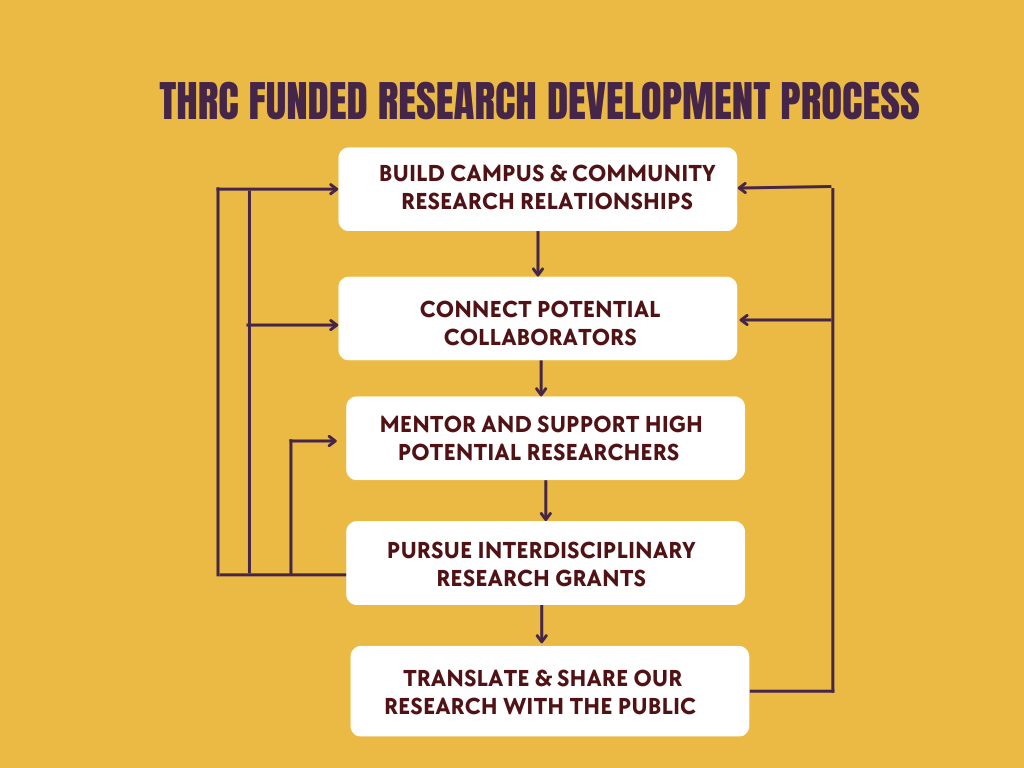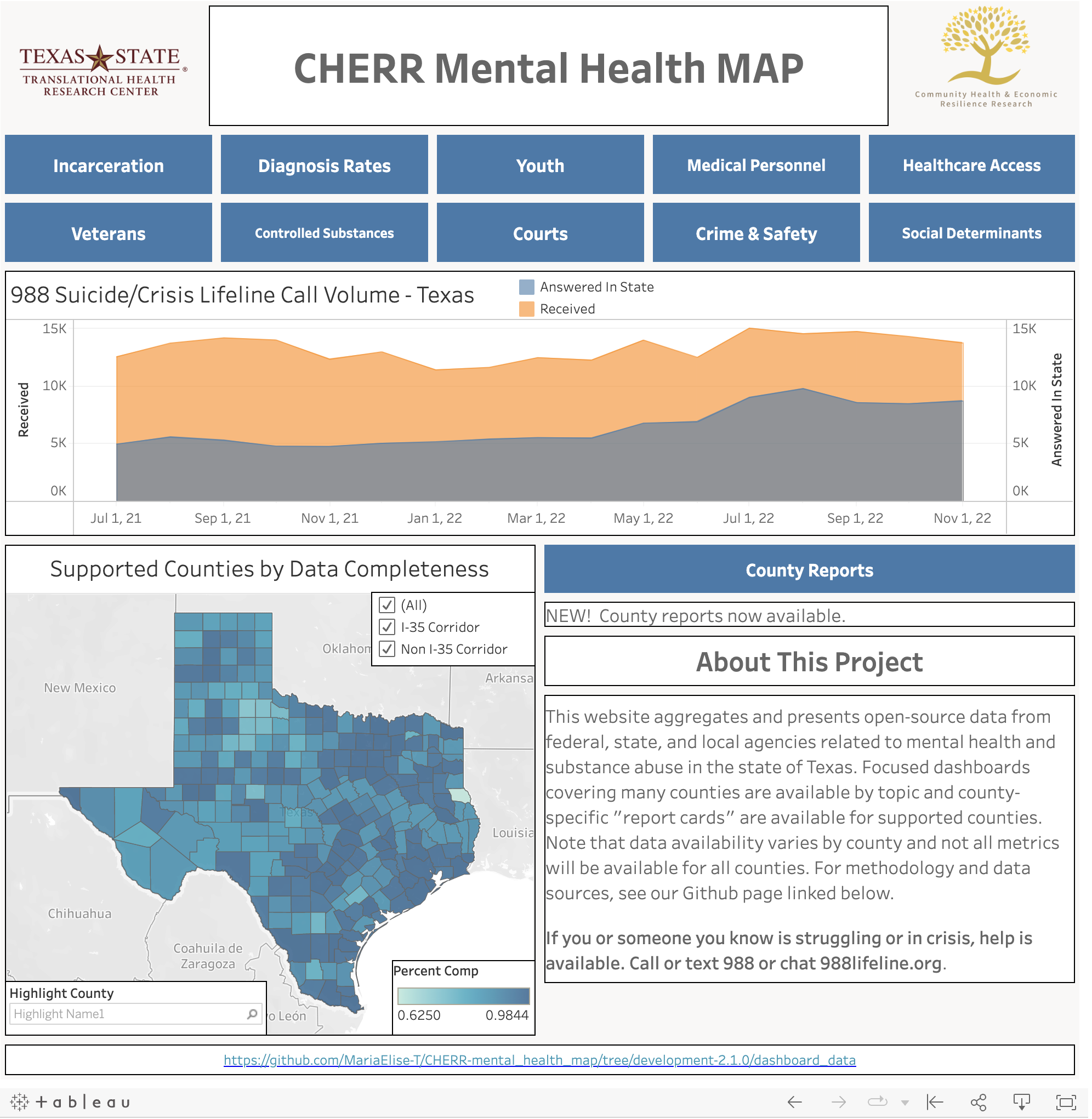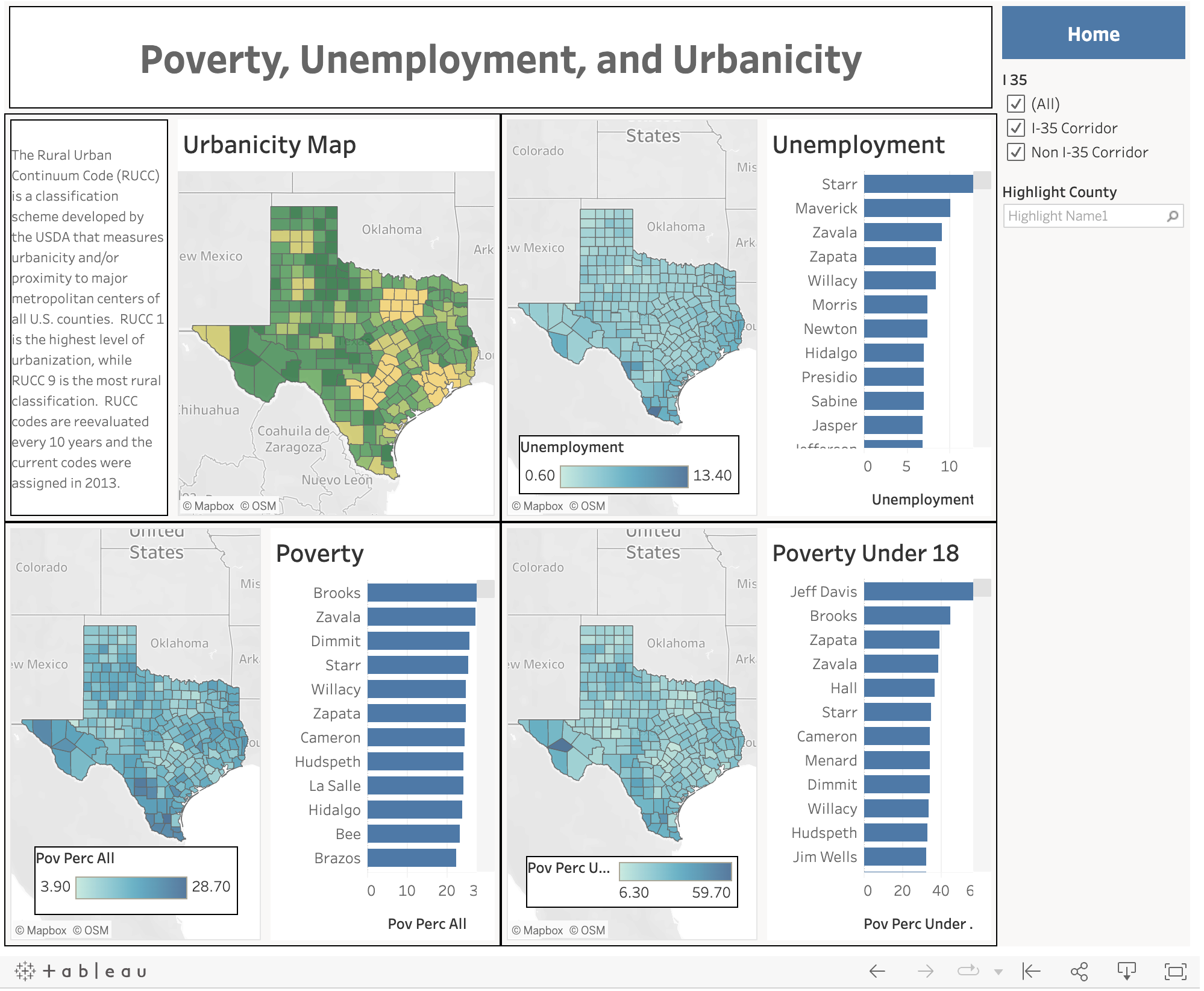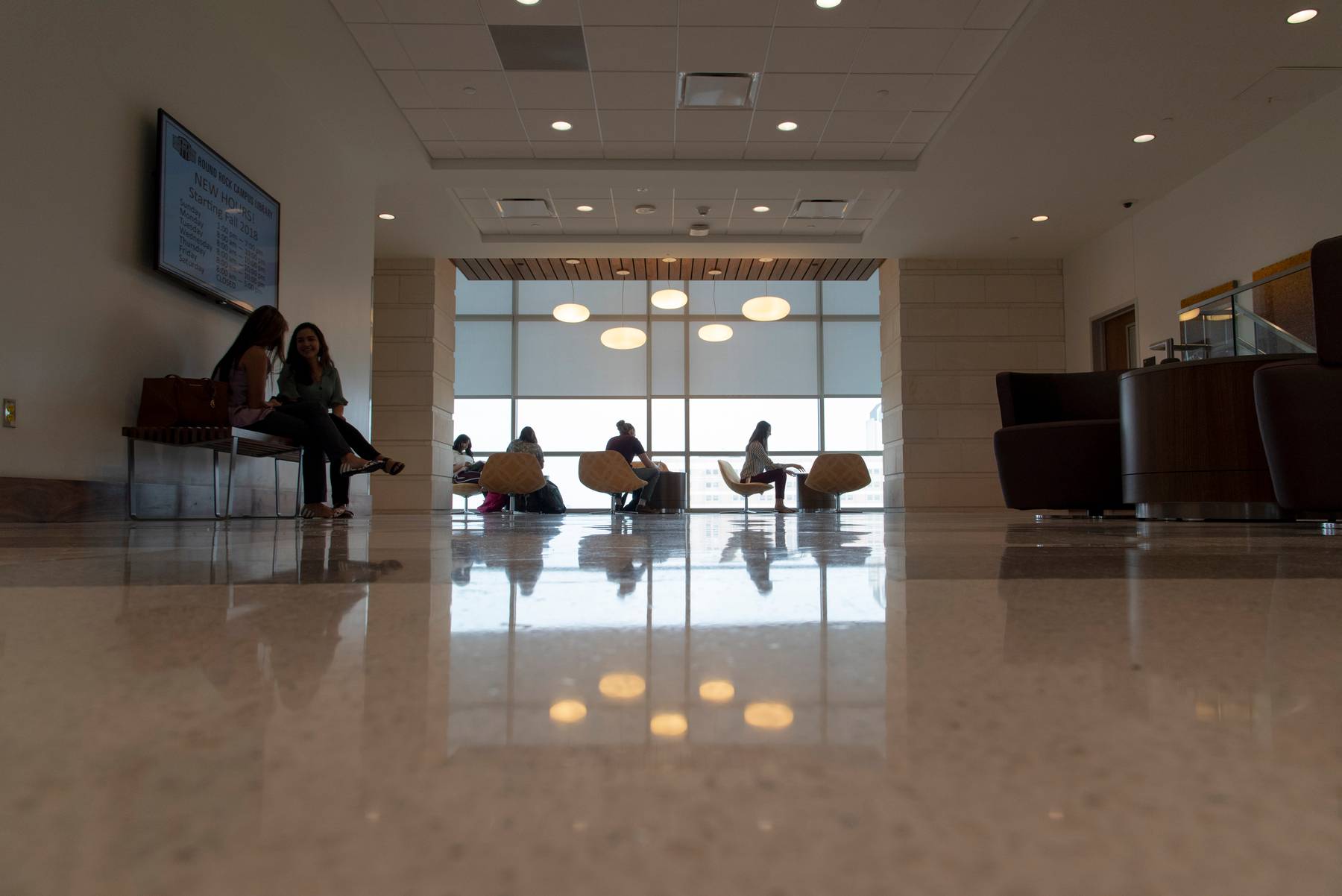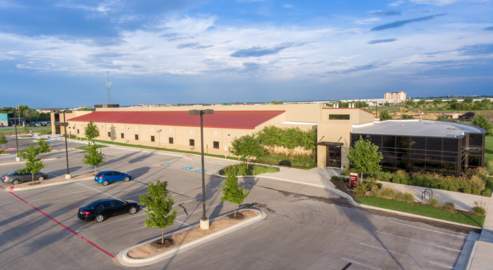Central Texas Community Mental Health Dashboard
In 2022, Dr. Melinda Villagran received a $2 million grant from Substance Abuse and Mental Health Services Administration (SAMHSA) to develop the Central Texas Community Mental Health Collaborative, which brought together data scientists and mental health experts to create a public health dashboard to map mental healthcare gaps in Central Texas.
This dashboard aims to address the mental health crisis through an innovative and data driven approach. We are aggregating and synthesizing open data sources to understand past, present, and future trends related to mental health and substance abuse in Central Texas.

